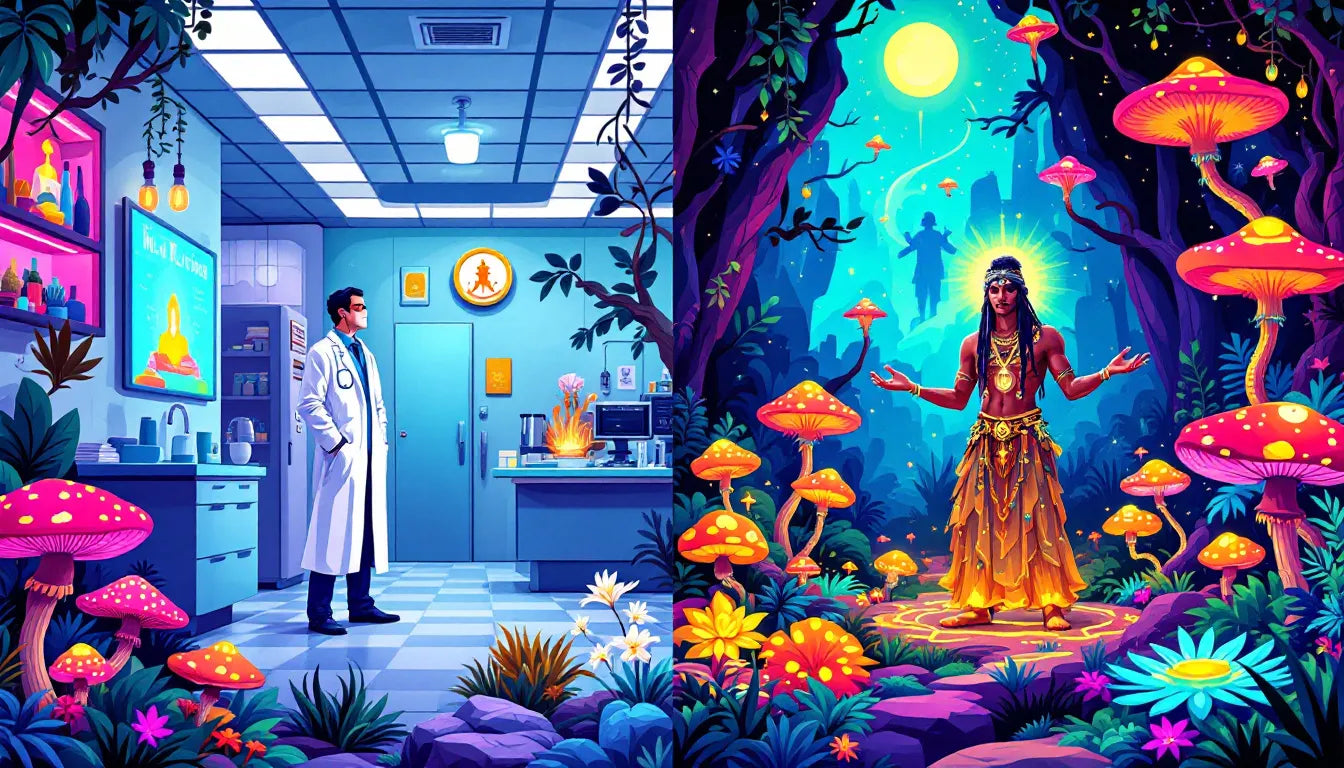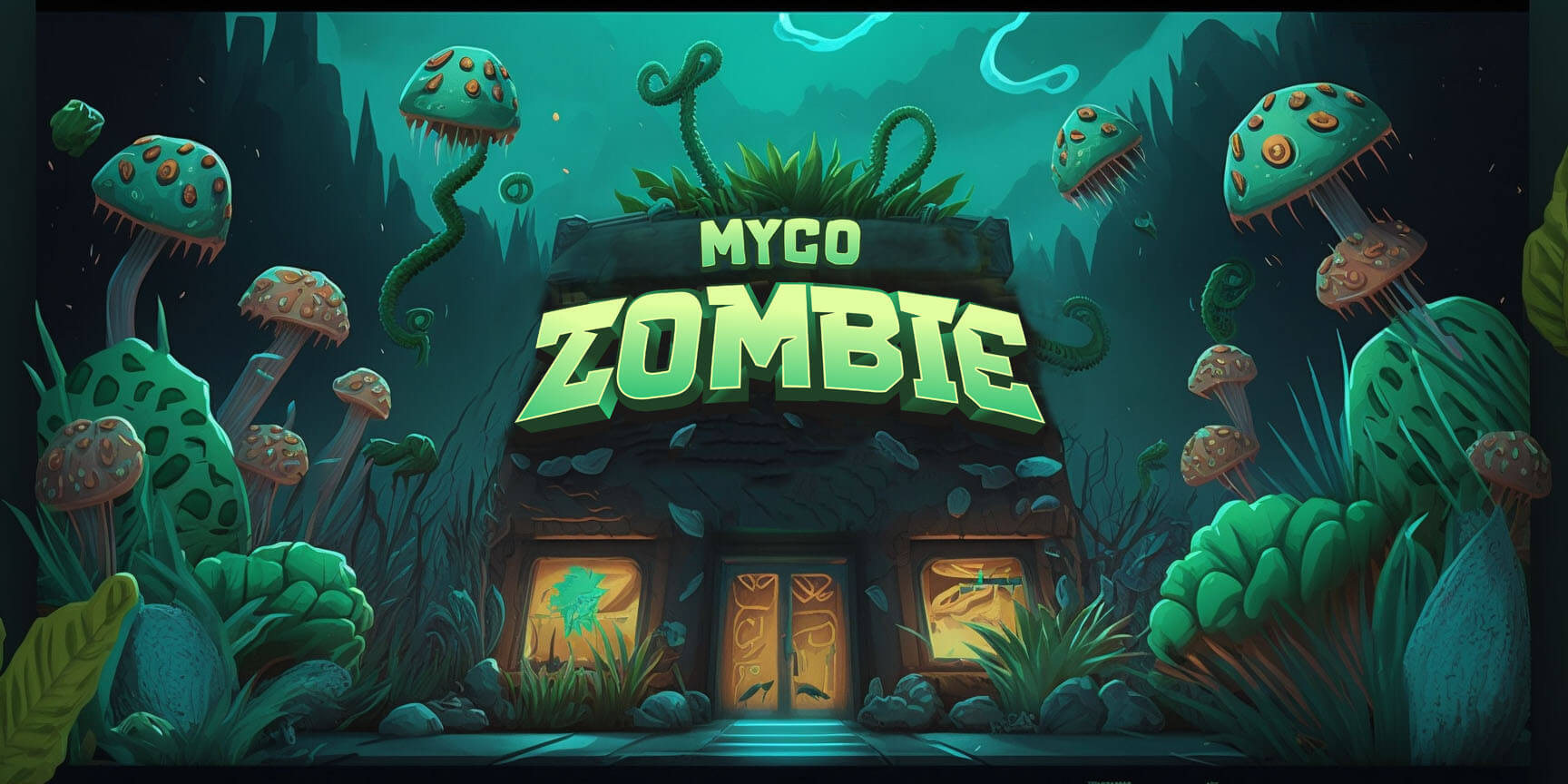- 🧠 Clinical psilocybin therapy is becoming mainstream, but underground guides worry about losing traditional, spiritual, and community-based healing practices.
- 💊 Corporate-backed "corporadelics" are pushing for standardized, pharmaceutical-style treatments that may lack the personal touch of underground facilitation.
- ⚠️ The high cost of clinical psilocybin therapy could make psychedelic healing inaccessible to lower-income individuals.
- 🌿 Underground guides emphasize holistic methods, tailoring sessions to personal needs with spiritual and emotional support.
- 🔄 A balanced future may require integrating underground facilitators with clinical practices to preserve traditional wisdom while maintaining safety standards.

The Growing Divide in Psilocybin Therapy: Standardization vs. Tradition
Psilocybin therapy is rapidly becoming a mainstream approach for mental health treatment, thanks to growing legalization, corporate backing, and clinical research. However, underground psilocybin guides—who have long played a vital role in psychedelic healing—are concerned that the shift toward medicalization may sideline traditional healing practices. As more legal frameworks emerge, the debate intensifies: Should psilocybin therapy be limited to licensed clinical settings, or is there room for underground facilitators to continue their work?

The Roots of Psilocybin Healing: The Role of Underground Guides
Long before psilocybin therapy gained recognition in mainstream science, underground guides nurtured its use as a tool for self-discovery, trauma healing, and spiritual growth. These facilitators often work within tight-knit communities, passing down knowledge through apprenticeship models rather than institutionalized training programs.
Unlike clinical therapists who follow strict medical protocols, underground guides operate within a holistic framework. Their methods may include:
- Ceremonial practices – Drawing from indigenous traditions, many underground facilitators incorporate rituals, chanting, or guided meditation into their sessions.
- Energy work and somatic therapy – Some guides integrate breathwork, body movement, or Reiki to help participants navigate deep emotional experiences.
- Community-based support – Unlike a doctor’s office visit, underground sessions are often conducted in intimate, home-like environments that emphasize trust, integration, and continued mentorship.
While not all underground psilocybin guides have formal training in psychology or medicine, many have extensive firsthand experience with psychedelics, which allows them to provide nuanced insights that clinicians may lack.

The Rise of ‘Corporadelics’: The Push for Clinical Standardization
The growing acceptance of psilocybin as a mental health treatment has led to a wave of corporate-backed research, often referred to as "corporadelics." Companies aim to create standardized, pharmaceutical-grade psilocybin therapies that can be administered in controlled medical settings. While this approach provides medical legitimacy and safety, it also raises concerns about accessibility, cost, and the loss of personalized healing elements.
Clinical standardization typically involves:
- Controlled dosing – Patients receive pre-measured doses in sterile environments rather than a more intuitive, individualized approach.
- Strict screening protocols – Only certain individuals qualify for treatment, excluding those with complex trauma backgrounds or non-diagnosable issues.
- Regulated medical supervision – Trained professionals must oversee each session, often restricting the involvement of traditional healers.
For example, clinical trials like MindMed’s Phase 3 study on LSD for anxiety highlight how psychedelics are being integrated into existing pharmaceutical frameworks. While this ensures safety, it also risks turning psilocybin therapy into another highly controlled treatment method, removing the spiritual and individualized nature of underground sessions.

Concerns About the Loss of Traditional Practices
As psilocybin therapy moves from underground settings into clinical institutions, many facilitators fear that its core healing principles—such as spirituality, personal connection, and community support—will be lost. Key concerns include:
- Lack of spiritual integration – Traditional psilocybin use often incorporates rituals, intention-setting, and ancestral wisdom, aspects that clinical models tend to omit.
- Personalized guidance limitations – Therapeutic frameworks often rely on standardized treatment plans, reducing the ability to tailor experiences to individual needs.
- Excessive medicalization – Some practitioners worry psilocybin therapy will become another prescription-based model, diminishing its transformative nature.
For people drawn to psychedelics for their potential to foster spiritual growth, clinical settings may feel overly rigid, leaving many to seek underground sessions where they can experience more personalized and profound healing.
Accessibility and the Price of Psychedelic Healing
One of the largest hurdles to mainstream psilocybin therapy is cost. While underground guides often offer sessions at sliding-scale rates or donation-based models, clinical options are expected to be prohibitively expensive.
For example, early estimates for FDA-approved psilocybin therapy suggest that a single session could cost between $3,000 and $7,000, making it inaccessible for many. This mirrors issues in the ayahuasca community, where ceremonial retreats frequently cost thousands of dollars, limiting access primarily to the wealthy.
If this trend continues, psilocybin therapy could become an elite wellness treatment rather than a universally accessible tool for healing.

The Ethics of Psychedelic Healing: Who Owns Psilocybin Therapy?
A central ethical debate in this transition is who should be allowed to guide psilocybin experiences. Should certified therapists and doctors exclusively control access, or should experienced underground facilitators be recognized for their contributions?
Advocates for underground facilitators argue that:
- Experience matters as much as certification – Knowledge of psilocybin's effects can come from direct experience, not just academic credentials.
- Decentralized models foster accessibility – Allowing diverse facilitators ensures that more people can benefit from treatment.
- Traditional healing shouldn't be erased – Indigenous and underground perspectives provide valuable insight that clinical frameworks often overlook.
Meanwhile, regulatory bodies insist that strict licensing procedures are necessary to prevent harm. Striking a balance between these perspectives will be crucial as psilocybin therapy becomes more widely available.

Psilocybin Mushroom Delivery and the Legal Grey Area
As psilocybin moves from underground markets to regulated institutions, online vendors have begun offering mushroom-related products through legal loopholes. Some companies market psilocybin as "research chemicals," while others use ambiguous labeling to avoid legal repercussions.
While convenient, this marketplace raises concerns about:
- Product safety – Without regulation, potency and purity can vary widely.
- Misinformation – Some vendors make exaggerated claims about therapeutic effects without scientific backing.
- Corporate monopolization – As regulations tighten, large corporations may take over psilocybin distribution, pushing out smaller vendors and community growers.

Beyond Therapy: Exploring Unconventional Psychedelic Healing
While psilocybin therapy is primarily studied for depression, PTSD, and end-of-life anxiety, alternative applications continue to emerge. Some new areas of exploration include:
- Sexual healing – Workshops like Sex and Psychedelics explore how psilocybin influences intimacy and emotional connection.
- Natural DMT activation – Some scientists theorize that orgasms may trigger DMT release, providing a new perspective on altered states of consciousness.
- Creativity and problem-solving – Many artists and entrepreneurs use low-dose psilocybin to enhance cognitive performance and out-of-the-box thinking.
These unconventional applications show that psilocybin therapy extends beyond clinical depression treatment, reinforcing the argument for a more flexible, inclusive approach.

Can Underground Guides and Corporate Psychedelics Coexist?
Rather than eliminating underground facilitation, the future of psilocybin therapy could involve a hybrid model, where elements of both clinical and traditional healing approaches merge. Some potential solutions include:
- Integrating underground guides into training programs – Recognizing the expertise of non-clinical facilitators.
- Offering sliding-scale pricing models – Ensuring therapy is accessible to a wider audience.
- Legalizing community-based healing initiatives – Allowing non-medical settings for guided psilocybin experiences.
A balanced approach that incorporates both the safety of clinical trials and the wisdom of underground guides may be the best way forward.
As psilocybin therapy continues to evolve, the debate over its future remains unresolved. While clinical models provide legitimacy and safety, underground guides ensure that psychedelic healing retains its personal, spiritual, and transformative nature. The challenge ahead lies in creating an ecosystem where both approaches can coexist, ensuring that psilocybin therapy remains both inclusive and effective.
FAQs
What role have underground psilocybin guides historically played in psychedelic healing?
Underground guides have provided community-driven, personalized, and often spiritual approaches to psilocybin therapy long before its clinical standardization.
Why are underground facilitators concerned about the corporatization of psychedelics?
They fear psilocybin therapy will become a sterile, for-profit industry that excludes spiritual, relational, and community-based healing aspects.
How does clinical psilocybin therapy differ from underground, community-based healing approaches?
Clinical therapy follows standardized protocols, focusing on measured outcomes, while underground healing incorporates personalized support and holistic practices.
What are the potential risks of removing traditional and spiritual elements from psilocybin therapy?
Stripping away traditional elements may reduce the therapy’s transformative potential, making it more of a pharmaceutical treatment than a holistic healing experience.
Are underground guides still relevant in a world where licensed clinics are becoming more common?
Yes, underground guides offer unique, non-medicalized perspectives that many individuals still seek for psychedelic healing.
How do accessibility and affordability factor into psilocybin therapy's transition to mainstream medicine?
Clinical psilocybin therapy may become prohibitively expensive, limiting access to only those who can afford high-priced sessions.
Can underground facilitators coexist with a regulated psychedelic industry, or will they be sidelined?
A coexistence is possible if alternative education models, decentralized healing communities, and equitable pricing structures are incorporated into the regulated system.
Citations
Journal of Psychedelic Studies. (2025). A study on underground psilocybin facilitators and their perspectives on clinical standardization.
Psychiatric Times. (2024). MindMed’s MM120 Phase 3 trial for LSD treatment of anxiety.
Earth.com. (2025). Scientists develop a synthetic version of ibogaine without rare plants.
Cannabis Now. (2025). Exploring the role of cannabis in sound healing practices.
To support diverse psychedelic healing practices, stay informed, advocate for accessibility, and explore both traditional and clinical approaches to psilocybin therapy. 🌿




